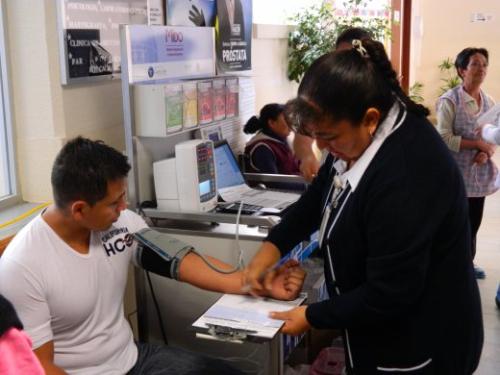Undertreatment of common diseases and conditions contributes to critical gaps in the public health of the United States. While undertreatment is a complex problem that can result from a range of failures along the healthcare continuum, lack of access to and low usage of health services is widely recognized as a critical barrier. Addressing the undertreatment of common diseases and conditions will require innovative thinking about existing healthcare practices, medical technologies, and a commitment to testing promising solutions by all healthcare stakeholders, including providers, payers, manufacturers, patients, and regulators.
Advances in technology have brought about promising solutions for consumer self-care. In recent years, medical technologies have been utilized in many healthcare delivery settings and have demonstrated the potential to improve outcomes and decrease costs. Applications developed for smartphones, electronic devices, and the internet can assist patients in making complex health care decisions. Portable and wireless diagnostic technologies can collect valuable health information such as cholesterol levels, blood pressure, and measures of blood glucose control and transmit the data back to the consumer or to providers via direct input into electronic health records (EHRs) to inform and optimize treatment. As these consumer-oriented medical technologies continue to evolve, patients will have better tools to facilitate the safe and effective use of medications.
In addition, an increasing number of alternative and innovative practice settings have expanded the role of many health care providers. Acute care centers and retail medical clinics (e.g., CVS MinuteClinic) provide consumers with greater access to and options for medical care, typically through the use of nurse practitioners, physician assistants, and pharmacists. Collaborative practice agreements and medication therapy management programs have also enhanced communication and clinical care between healthcare providers.
Recognizing these emerging trends and opportunities, the U.S. Food and Drug Administration (FDA) is exploring how health care providers and innovative technologies might enable a broader range of medications to be made available in the nonprescription setting. This initiative, know as Nonprescription Safe Use Regulatory Expansion (NSURE), was launched by FDA to address one issue that may contribute to the problem of medical undertreatment: lack of access to appropriate medications. Through an expansion of the nonprescription drug class, FDA may support increased access to medications for undertreated diseases and conditions, particularly for underserved populations without regular access to a physician.
Establishing creative ways to utilize technologies and health professional expertise may help to overcome existing barriers in consumer self-care. In-store kiosks, mobile applications, and other technologies may help to guide consumers to the appropriate self-selection and self-treatment of medications. Similarly, pharmacists and other healthcare providers may provide consultation services to ensure the continued safe use. These mechanisms may permit certain prescription medications to be switched to nonprescription status for increased access.
In launching the NSURE initiative, FDA has begun to address one component of undertreatment of common diseases and conditions. Further development of the NSURE initiative will require a greater understanding of the health, economic, behavioral, and technological factors involved. In an effort to explore these key considerations, the Engelberg Center for Health Care Reform has initiated a series of expert workshops which address major factors in the NSURE initiative. These meetings have served to inform the NSURE initiative through broad stakeholder input on issues related to the role of health care providers, the innovative application of technology, and integration within the existing health care delivery systems. Additional topics to be explored in upcoming workshops include issues related to cost-shifting, third-party reimbursement, and economic considerations.
Ultimately, the NSURE initiative may promote the use of essential medications, and could serve as an important mechanism to bring undertreated patients into the healthcare system. For more information on these issues, including a description of the latest expert workshop, please visit the Brookings event page “Innovative Technologies and Nonprescription Medications: Addressing Undertreated Diseases and Conditions through Technology Enabled Self-Care”.
The Brookings Institution is committed to quality, independence, and impact.
We are supported by a diverse array of funders. In line with our values and policies, each Brookings publication represents the sole views of its author(s).






Commentary
Can Smartphones Help Improve Access To Medications?
June 7, 2013